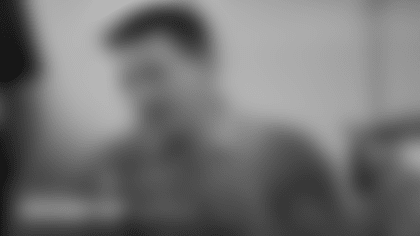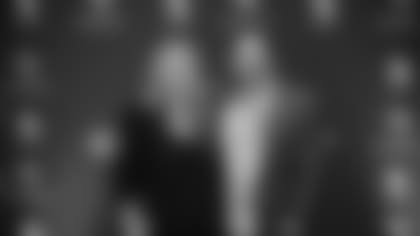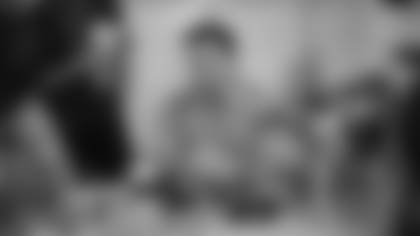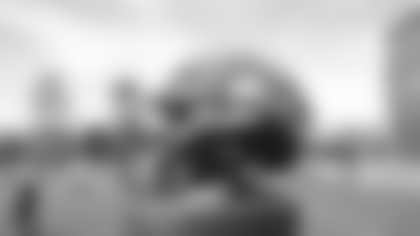The Seahawks host the New Orleans Saints on Sunday, a battle between two of the NFC's top teams and the sixth meeting, postseason included, between Seattle and New Orleans since 2010. The Saints will be playing without quarterback Drew Brees, who injured his thumb in last week's game and had thumb surgery earlier in the week, but still present plenty of challenges on both sides of the ball. Also of note, the Saints have been in Seattle all week, practicing at the University of Washington after electing to stay on the West Coast following a Week 2 game at the Los Angeles Rams.
To find out more about Seattle's Week 3 opponent, we reached out to neworleanssaints.com senior writer John DeShazier with five questions about the Saints:
Q: We'll just start with the obvious, the loss of Drew Brees to a thumb injury. Obviously losing a Hall of Fame-caliber quarterback is a big blow, but how do things change for the Saints' offense with Teddy Bridgewater and Taysom Hill taking over?
DeShazier: That'll be an interesting development, since Coach Sean Payton has said he'll play both quarterbacks. Bridgewater is the more accomplished passer of the two, and that's been a somewhat forgotten fact by most Saints fans. He has a lively arm, and New Orleans didn't have an opportunity for many "shot" plays against the Rams. But with Bridgewater's arm and a week to incorporate his specific strengths into the game plan, don't be surprised to see the Saints go downfield a bit more often in the pass game. Hill is a phenomenal talent, and his passing has improved considerably. He's not just the RPO guy from last year, he legitimately can do damage from the pocket. But he does give that Russell Wilson-type element of being able to escape pressure and if he's in trouble, he knows how to find a lane and take off. But, really, the offensive line will be critical here. It didn't have a good game against the Rams, to be polite. Brees' knowledge and talent perhaps could have masked some of those deficiencies against the Rams, but asking Bridgewater and Hill to be that knowledgeable, in the offense that Brees has mastered since 2006, isn't realistic. So the line simply is going to have to play MUCH better than it did against L.A. Designed rollouts are preferable to running because there is no other option.
Q: On a related note, how does a multi-game absence for Brees change 2019 expectations for the Saints?
DeShazier: Realistically, I think the bar has to be lowered. It's impossible to lose a Hall of Fame quarterback and expect to chug along as if nothing happened. Probably along the lines of what would happen if Wilson had to miss time for Seattle. But what the Saints have attempted to do the last several years, with pretty good success, is put more talent around Brees and lessen his load. Last year, he threw for less than 4,000 yards for the first time since 2005 in part because of a strong running game, and in part because the Saints' defense prevented shootouts once it got its bearings. That said, I think the team is capable of staying afloat until Brees returns, then making a run once he's back. If they can hang in during his absence, the expectations again will be realistic.
Q: The Rams did a good job containing Alvin Kamara last week; given the situation at quarterback, is it safe to say that getting Kamara on track is crucial for the offense?
DeShazier: The Rams definitely made a point of taking away Kamara, and that's difficult to do. There were contributing factors—Brees left after the ninth offensive play, one receiver was injured during pregame and another exited during the game—so the offensive weapons really thinned. And the Saints only ran 57 offensive plays, so chances were limited. But Payton will find ways to get the ball in Kamara's hands more often, especially in the passing game. I'm sure the Seahawks will devote special attention to him, but he can be especially dangerous as a receiver.
Q: Moving to the other side of the ball, we all know the Saints defense made a big turn in recent years after a rough stretch, how well-equipped is New Orleans on that side of the ball if the Saints need to try to win some low-scoring defensive battles?
DeShazier: That very well could be the case. The Rams game actually was on that path until late; it was 6-3 at halftime, 6-6 with 9:49 left in the third and 13-6 Rams with 5:39 left in the third. The defense knows it has to give a four-quarter performance instead of a two-and-a-half quarter showing. New Orleans has nine sacks in two games, so pressure hasn't been a problem. But the defense has given up some big third-down conversions (the Rams converted a third-and-16), and those situations have to be eliminated. They need to give the offense as many at-bats as possible, and they'll want to keep Wilson in the pocket (like everyone does; easier said than done).
Q: What went into the decision to stay out west between last week's game in L.A. and this one? And have the Saints done anything similar before/how did Sean Payton feel it worked last time?
DeShazier: The stay simply was for a rest-and-recovery effort. It's a long flight from L.A. back to New Orleans, then a longer one from New Orleans to Seattle. Those essentially would have been days where, at best, preparation would have been abbreviated. It was easier to get the film review done, begin treatment, etc. I can't recall the team having this scenario presented before – consecutive West coast road games—so I don't believe it has been away this long for a regular-season road trip before (not counting London, of course). But, on occasion, the Saints have been known to depart on Friday for a Sunday game on the West coast. I think Payton likes the extra time for acclimation purposes (weather, time zone). He feels pretty comfortable doing it this way; he's looking to give the team every conceivable edge.






